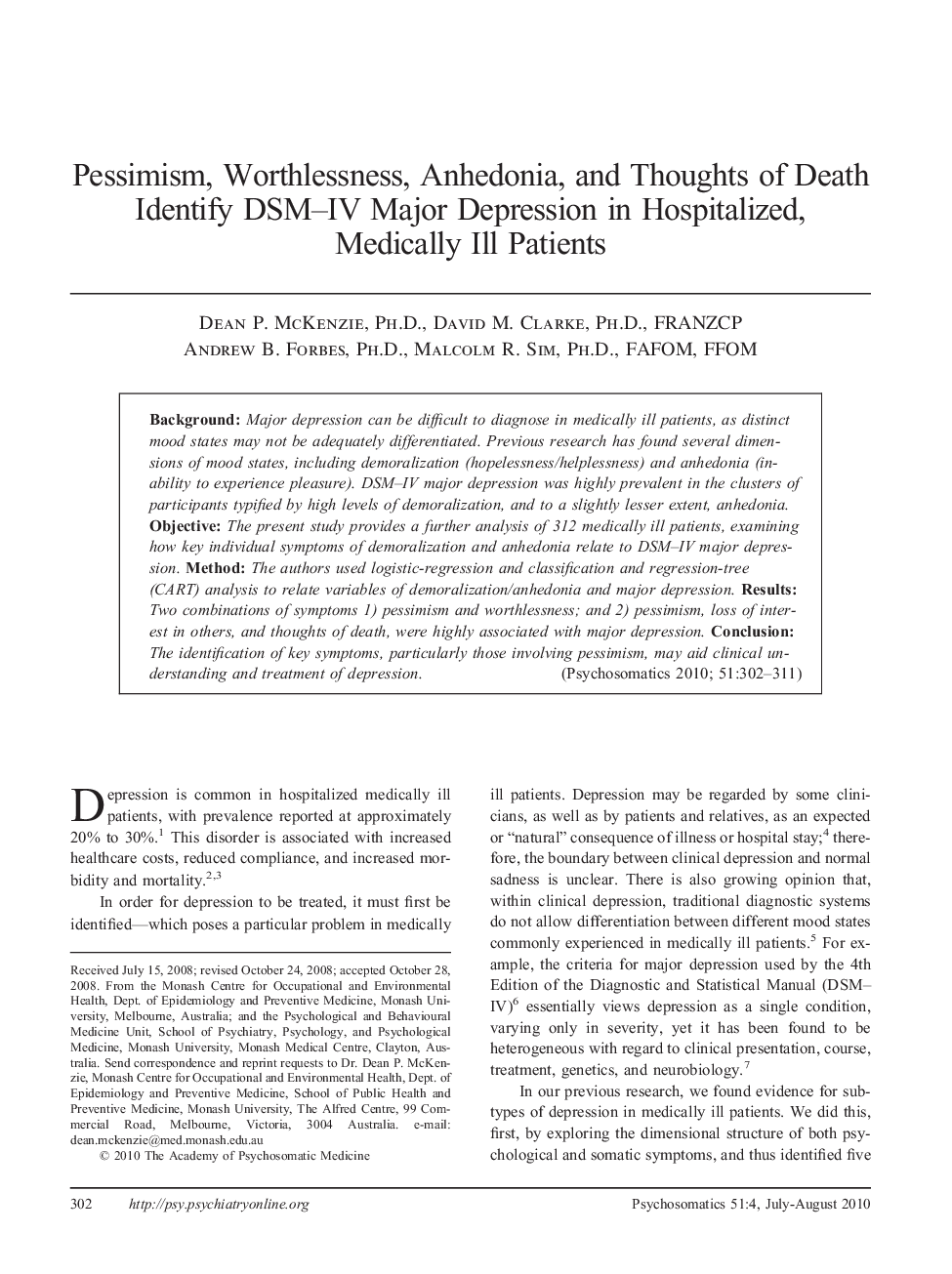| Article ID | Journal | Published Year | Pages | File Type |
|---|---|---|---|---|
| 339326 | Psychosomatics | 2010 | 10 Pages |
BackgroundMajor depression can be difficult to diagnose in medically ill patients, as distinct mood states may not be adequately differentiated. Previous research has found several dimensions of mood states, including demoralization (hopelessness/helplessness) and anhedonia (inability to experience pleasure). DSM–IV major depression was highly prevalent in the clusters of participants typified by high levels of demoralization, and to a slightly lesser extent, anhedonia.ObjectiveThe present study provides a further analysis of 312 medically ill patients, examining how key individual symptoms of demoralization and anhedonia relate to DSM–IV major depression.MethodThe authors used logistic-regression and classification and regression-tree (CART) analysis to relate variables of demoralization/anhedonia and major depression.ResultsTwo combinations of symptoms 1) pessimism and worthlessness; and 2) pessimism, loss of interest in others, and thoughts of death, were highly associated with major depression.ConclusionThe identification of key symptoms, particularly those involving pessimism, may aid clinical understanding and treatment of depression.
